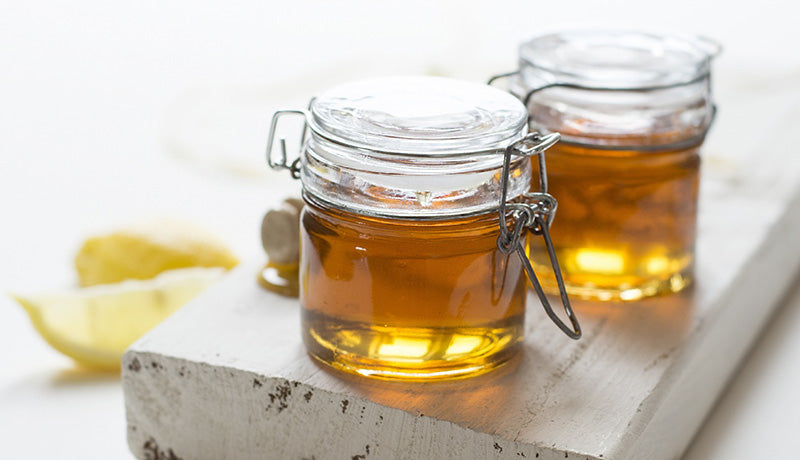Honey is a natural sweetener that has been used for centuries as a food and medicinal ingredient. While the nutrient composition of honey can vary depending on factors such as floral source and processing methods, here's a general overview of its nutrient composition:
-
Carbohydrates: Honey is primarily composed of carbohydrates, mainly in the form of simple sugars like fructose and glucose. These sugars provide a quick source of energy for the body.
-
Water: Honey contains varying amounts of water, typically ranging from 17% to 20%. The water content affects the texture and consistency of honey.
-
Vitamins: Honey contains small amounts of certain vitamins, although the levels may be relatively low. These vitamins include vitamin C, vitamin B6, niacin, riboflavin, and thiamin. While the amounts may not be significant, honey can still contribute to overall nutrient intake.
-
Minerals: Honey contains trace amounts of minerals such as calcium, iron, magnesium, potassium, phosphorus, sodium, zinc, and copper. The mineral content can vary depending on the floral source and geographical location.
While honey does provide some nutrients, its real value lies in its potential health benefits when consumed in moderation as part of a balanced diet:
-
Natural sweetener: Honey can be used as a healthier alternative to refined sugar or artificial sweeteners. It adds natural sweetness to foods and beverages.
-
Antioxidant properties: Honey contains various antioxidants, such as flavonoids and phenolic acids, which help protect the body against oxidative stress caused by free radicals. Antioxidants have been associated with reducing the risk of chronic diseases.
-
Soothing properties: Honey has been used for its soothing and healing properties, particularly for sore throats and coughs. It can help relieve cough symptoms and provide a soothing effect on inflamed mucous membranes.
-
Potential prebiotic effects: Some types of honey, particularly raw honey, may have prebiotic properties. Prebiotics serve as food for beneficial gut bacteria, promoting a healthy gut microbiome.
-
Energy source: Honey is a source of quick energy due to its high sugar content. It can be beneficial for athletes or individuals needing an instant energy boost.
However, it's important to note that honey is still a form of sugar and should be consumed in moderation. Its caloric content and impact on blood sugar levels make portion control essential, particularly for individuals with diabetes or those trying to manage their weight.








